Top 10: AI-based Marketing software
Updated: August 01, 2023
AI for marketing is a game-changing technology that revolutionizes the way businesses approach their marketing efforts. Leveraging artificial intelligence and machine learning algorithms, AI for marketing enables businesses to analyze vast amounts of customer data and gain valuable insights into customer behavior, preferences, and purchasing patterns. This technology can personalize marketing campaigns and content to target specific customer segments, increasing the relevance and effectiveness of marketing messages. AI-powered chatbots and virtual assistants offer real-time customer support, enhancing customer experiences and engagement. Moreover, AI for marketing can optimize ad targeting and bidding, improving the ROI of digital advertising efforts. With the ability to automate repetitive tasks, AI streamlines marketing workflows, enabling marketers to focus on strategic initiatives and creative endeavors. As AI technology continues to advance, AI for marketing is becoming an indispensable tool for businesses seeking to deliver personalized, data-driven, and impactful marketing campaigns that drive customer engagement, loyalty, and business growth.
Some of the most popular AI-based marketing software options are listed below.
See also: Top 10 Marketing software
See also: Top 10 Marketing software
2023. YouScan adds Insights Copilot - an ultimate AI tool for social listening
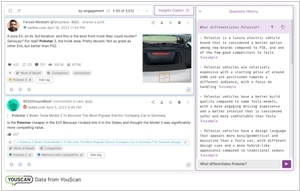
YouScan, the social media listening platform, has introduced Insights Copilot, an intelligent assistant for social media listening powered by ChatGPT. Within the YouScan platform, Insights Copilot is conveniently accessible in the mentions stream. This assistant is equipped with a user-friendly natural language interface, allowing you to input any question regarding social data or utilize our suggested questions. By asking the Insight Copilot the appropriate question, such as "What sets Polestar apart?", you can promptly obtain the desired information. With Insights Copilot, you gain instant access to valuable insights, enabling you to enhance your marketing strategies, refine your communication efforts, and elevate your products and services to surpass competitors, resulting in exceptional customer experiences for your clients.
2023. Automattic launches an AI writing assistant for WordPress
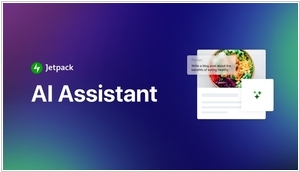
Automattic has introduced an AI assistant for the widely used content management system Wordpress.com. Now, when composing a post or page, users have the option to incorporate an "AI Assistant" block into their content. By inputting prompts in natural language, users can avail themselves of the AI assistant's text generation capabilities. Beyond providing content suggestions, the AI assistant can facilitate the creation of organized lists and tables within blog posts. Additionally, it has the ability to adjust the tone of a post, adding elements of informality, skepticism, humor, confidence, or empathy. The assistant can also generate post summaries and propose suitable titles. Initially, the Jetpack AI Assistant block offers a complimentary trial allowing users to submit 20 requests. Subsequently, a subscription fee of $10 per month is required to access this feature.
2022. BlueOcean raises $30M for its AI-based brand intelligence platform
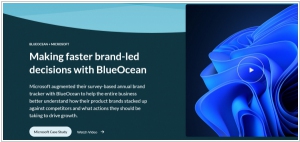
BlueOcean, a company that utilizes artificial intelligence to generate actionable insights, has secured $30 million in funding. Initially, BlueOcean offered brand audits that provided customers with a list of actionable recommendations for improvement. Over time, the company has expanded its services and engagement model. Presently, BlueOcean's AI algorithms and advanced data analysis engine provide continuous feedback to its subscribed customers. These customers pay annual fees starting at $100,000 to access the service. By leveraging AI and big data, BlueOcean aims to deliver valuable and ongoing insights to its clients, facilitating continuous improvement and growth.
2021. AI-powered competitive enablement platform Klue lands $62M
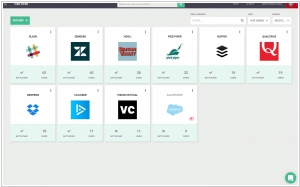
Klue, an AI-powered platform for competitive enablement, has successfully raised $62 million in Series B funding. The platform utilizes artificial intelligence to automatically collect competitive data from a variety of sources, including public and private external sources such as news updates and competitor website changes. It also integrates with internal team platforms like Slack, Highspot, and Salesforce to gather data. Klue's primary objective is to empower product marketers and competitive intelligence teams to enhance their understanding and coverage of competitors. The company plans to heavily invest in advancing its AI capabilities, simplifying insight generation, and expanding its user base through new market development opportunities.
2021. AIfluence closes $1M for its AI-powered influencer marketing platform
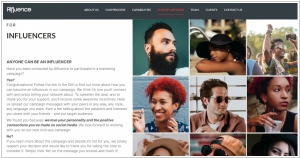
AIfluence is a startup that employs an AI-driven approach to measuring influencer marketing campaigns, recognizing that influencer marketing is a rapidly growing and highly impactful media channel. Brands now understand the significance of their customers relying on recommendations from relatable individuals. Despite being such an influential channel, global brand teams face a significant challenge: determining the return on investment (ROI) of their influencer marketing campaigns. AIfluence tackles this dilemma by identifying and gaining deep insights into target audiences, then working backwards to identify influencers who have a profound impact on these audiences. The platform operates on a trust network model, leveraging thousands of nano influencers and their followers who possess a genuine affinity for a brand and exhibit a strong emotional connection with the target audience.
2021. Breinify raises $11M to bring data science to the marketing team
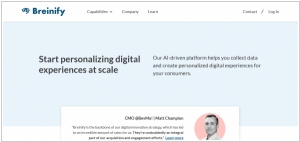
Breinify, a startup dedicated to utilizing data science for personalized experiences, has secured $11 million in funding. The company aims to make this intricate technology accessible to non-technical marketing professionals, enabling them to create more meaningful customer interactions. Breinify achieves this accessibility by abstracting the complexity of the underlying algorithms powering their platform. This involves providing customizable options for website messaging, emails, text messages, or any other communication channel utilized by marketers. The platform's AI intelligently determines the appropriate products, offers, and promotions to present to customers, tailored to specific channels such as the web, email, or SMS. This ensures that customers receive unique content across different channels, all handled automatically by the platform's algorithms.
2021. Blueshift raises $30M for its AI-based customer data platform
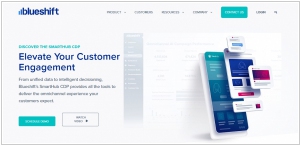
Blueshift, a startup specializing in an all-in-one marketing stack, has successfully concluded a Series C funding round, securing $30 million. The company's impressive roster of customers includes LendingTree, Discovery Inc., Udacity, BBC, and Groupon, and it has achieved a remarkable revenue growth of 858% over the past three years. Blueshift offers a customer data platform (CDP) called "SmartHub," which is designed to cater to non-technical users while remaining customizable by engineers, if required. Users can seamlessly integrate data feeds from multiple sources, which Blueshift processes and organizes, presenting it in a structured manner for convenient viewing. This data can then be utilized to drive actions in various areas where marketing campaigns are being set up.
2020. Mailchimp launches new AI marketing tools
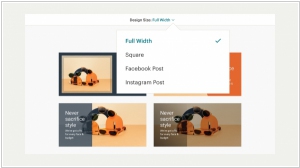
Mailchimp has introduced a suite of AI-powered tools aimed at providing small businesses with the same advanced capabilities utilized by their larger counterparts. These tools encompass personalized product recommendations for customers and predictive analytics for targeted marketing, enabling businesses to identify potential buyers more effectively. Additionally, Mailchimp has unveiled a new AI-driven tool that assists business owners in creating visually appealing assets, leveraging its acquisition of Sawa. Furthermore, a tool has been introduced to aid in crafting compelling email subject lines, helping businesses enhance their communication strategies.
2020. SugarCRM acquires Node to gain predictive customer intelligence
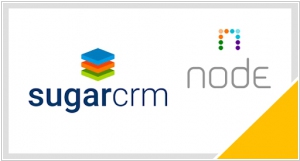
SugarCRM made an announcement today about its acquisition of Node, a customer intelligence startup. This strategic move not only brings valuable AI expertise to SugarCRM but also introduces a customer prediction component to its platform. This means that SugarCRM will now have the capability to identify customers who are most likely to convert or churn. As a result, SugarCRM enters into direct competition with industry players like Adobe and Salesforce, who have long offered predictive intelligence layers. Established in 2014 and having raised over $43 million, Node fills a significant gap for SugarCRM by enhancing engagement analytics and enabling action across various stages of the business. Simultaneously, it serves as a unique market differentiator for the company.
2020. Spectrm raises $3M for its conversational marketing platform
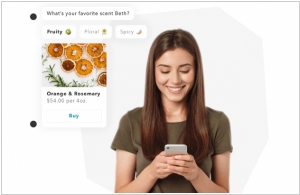
Spectrm, a conversational marketing platform powered by artificial intelligence (AI), has secured $3 million in Series A funding from global venture capital fund Runa Capital. Spectrm leverages AI-driven algorithms to automate conversations and effectively engage and convert customers online. By utilizing chatbots developed with Spectrm, incoming messages receive instant responses, transforming each interaction into a valuable opportunity. Marketers then leverage this data to segment their customer base and foster stronger customer relationships. Notable companies such as eBay, Ford, Groupon, Renault, and KLM rely on the Spectrm platform. Competitors in this space include LivePerson (listed on Nasdaq), ManyChat (raised $19.1 million), Snaps.io ($11.3 million), Automat.ai ($10.9 million), and Chatfuel ($120,000).
2020. Bluecore raises $50M for its first-party, AI-based marketing automation tools
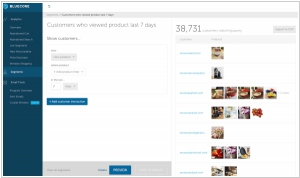
Bluecore, a marketing technology firm, has successfully raised $50 million. The company utilizes data obtained from various direct marketing channels such as email, social media, and site activity. By leveraging machine learning, Bluecore makes accurate predictions about customer preferences and buying behavior. This recent funding follows substantial growth experienced by the company. Bluecore asserts that its platform and its utilization have a considerable impact on approximately 10% of all non-Amazon Gross Merchandise Value (GMV) in the United States. This is particularly noteworthy considering the fragmented nature of the e-commerce landscape when Amazon is excluded from the equation. Bluecore's impressive roster of 400 customers includes renowned brands like Sephora, CVS, Teleflora, and Tommy Hilfiger.
2020. Frame AI raises $6.3M Series A to help understand customers across channels
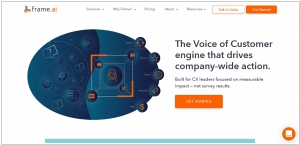
Frame AI, a startup leveraging artificial intelligence and machine learning, has recently revealed the successful completion of a $6.3 million Series A funding round. Frame AI specializes in assisting companies in gaining a deeper understanding of their customers across various channels. Essentially, Frame AI functions as an early warning system and continuous monitoring tool for capturing and analyzing customer feedback. The platform seamlessly integrates with help desk software, call center tools, CRM systems, and other customer communication platforms within a company. By doing so, Frame AI provides valuable insights into customer interactions, enabling businesses to improve their customer experience and optimize their operations.
2020. Retina raises $2.5M for its AI-powered customer analysis software

Closely examining customer behavior and their potential lifetime value has led to a successful funding round of $2.5 million for Los Angeles-based startup Retina. With Retina's Shopify app, vendors can effectively process data and obtain predictive insights on customer lifetime value. Even for sellers not integrated with Shopify, Retina offers the option to analyze their data and provide valuable predictions on customer value. The analysis performed by Retina takes into account factors such as recency, frequency, and churn rates to map out customer acquisition strategies. The software collects relevant data by analyzing transaction logs from customer data or payment platforms, as stated by a company spokesperson.
2019. Appier raises $80M for AI-based marketing technology
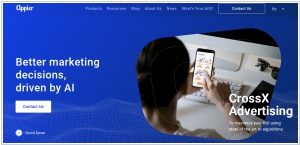
Appier, a startup based in Taipei, has recently secured $80 million in funding. The company specializes in providing brands and retailers with an artificial intelligence engine that enhances customer engagement, predicts purchasing behaviors, and improves conversion rates on their websites. Appier's flagship product, CrossX, serves as a cross-platform advertising engine, offering retargeting capabilities and facilitating app installations. Additionally, it leverages deep learning technology to assist publishers and brands in discovering new target audiences for their products. While CrossX remains Appier's most popular offering, the company has expanded its services to encompass various other solutions centered around the core objective of leveraging customer information more intelligently. This includes strategic acquisitions, such as QGraph and Emotion Intelligence (Emin), to enhance the platform's analytics and functionality.
2018. Microsoft launches new AI applications for Dynamics 365 CRM
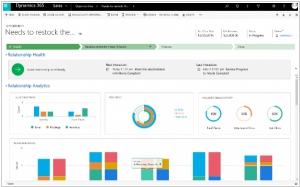
A year ago, Microsoft made its debut in the field of AI solutions with its first offering in the Dynamics 365 portfolio. Today, Microsoft is expanding this portfolio by introducing three new products: Dynamics 365 AI for Sales, Customer Service, and Market Insights. Dynamics 365 AI for Sales is designed to empower sales teams by providing them with deeper insights into their prospects through sentiment analysis. While sentiment analysis may be considered a fundamental application of machine learning, AI for Sales goes beyond by assisting salespeople in determining the appropriate actions to take and prioritizing prospects effectively. Similarly, the Customer Service application employs natural language understanding to comprehend and predict customer service issues, leveraging virtual agents to reduce costs. Lastly, Dynamics 365 AI for Market Insights fulfills its name by equipping teams with valuable data on social sentiment, but it goes a step further by offering more comprehensive insights.
2018. Asana adds AI-powered interactive project maps
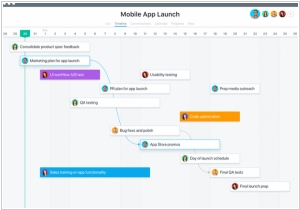
Workflow management platform Asana has introduced a new feature called Timeline, offering composite, visual, and interactive maps that illustrate the progress of various projects assigned to team members. This feature provides teams with a broader perspective on their collective workload and visualizes how projects interconnect in a timeline format. Timeline proves valuable in scenarios such as product launches, marketing campaigns, and event planning. Importantly, it does not require duplicating work or using separate software; instead, each project automatically becomes a distinct segment on the team's Timeline. It's worth noting that Timeline is exclusively available to paying users, while free users among Asana's extensive user base will need to upgrade to the premium tier to access this feature.
2017. Adobe Campaign gets AI-features
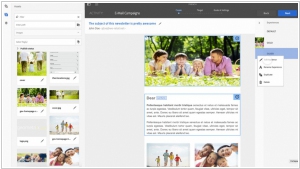
Adobe has unveiled several enhancements for its email marketing tools in Adobe Campaign. While many of these features are already accessible, such as improved dashboards, new email templates, and enhanced support for multilingual campaigns, the most intriguing additions are the new machine learning-powered capabilities. These advancements enable the identification of optimal subject lines for emails and, in the near future, suggest personalized images for specific recipients who open marketing emails. Another noteworthy predictive feature demonstrated by the company is a tool that predicts customer churn based on their email engagement patterns. Although this employs conventional machine learning techniques, the accuracy of such predictions heavily relies on the quality of the input data. When combined with data from Campaigns, this tool can anticipate when a customer is likely to unsubscribe from a service, offering valuable insights to businesses.
2017. Marketing platform HubSpot acquires AI startup Kemvi
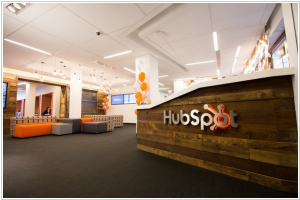
Inbound marketing and sales platform HubSpot has made an acquisition of Kemvi, a startup that utilizes artificial intelligence and machine learning to assist sales teams. A short while ago, Kemvi introduced DeepGraph, a product that examines public data to enable salespeople in identifying the optimal time (such as after a job transition or the release of an article) to connect with potential customers. Additionally, it takes proactive measures to verify leads. HubSpot was actively seeking innovative ways to incorporate AI technology into its platform as a means to combat competitors. The acquisition of Kemvi was especially attractive to HubSpot due to its ability to address a genuine requirement among salespeople.
2017. Marketing personalization startup Dynamic Yield gets $9M funding
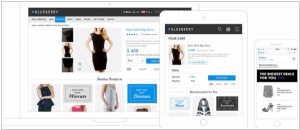
Dynamic Yield, a company leveraging machine learning to enable online marketers in personalizing customer experiences on their websites, has secured an additional $9 million for its Series C funding round, resulting in a new total of $31 million. Similar to other competing solutions, Dynamic Yield's tools aggregate data from various sources, including websites, mobile apps, emails, and online advertisements, which are typically isolated, and utilize this data to dynamically customize the content shown to each customer based on their previous purchases, browsing behavior, and geographic location. The company has positioned itself as a prominent full-stack solution provider for online retailers, publishers, and vendors who recognize the significance of personalization as a key differentiator and a predictor of success.

